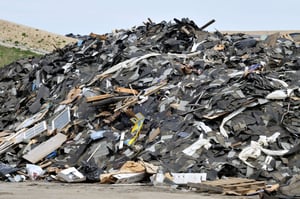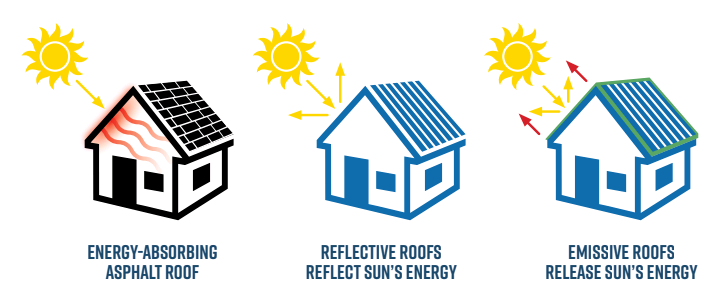As we better understand the environmental effects of rapid industrial growth and heightened energy use, a significant cultural shift has occurred toward implementing sustainable practices. This push to reverse long-term environmental consequences drives businesses and individuals to commit to sustainable practices that conserve natural resources and ensure future health and well-being.
The U.S. Environmental Protection Agency defines environmental sustainability as "meeting today's needs without compromising the ability of future generations to meet their needs." No industry or business segment is exempt from having to focus on environmental sustainability.
Another definition, derived from the U.S. National Environmental Policy Act of 1969 (NEPA), defines the goal of environmental sustainability as "to create and maintain conditions, under which humans and nature can exist in productive harmony, that permit fulfilling the social, economic, and other requirements of present and future generations."
With these definitions in mind, it is clear that taking practical steps toward sustainability is vital to ensure the future of our current and future world.
As homeowners seek to implement more sustainable practices, metal roofing systems stand out when customers compare their environmental impact to other roofing materials.
Asphalt shingles are the most common roofing material due to their low cost and ease of availability. However, when considering asphalt shingles for sustainability, it is one of the least eco-friendly options. Asphalt shingles are manufactured using crude oil and other chemicals. Additionally, at the end of their 12-20-year lifespan, asphalt shingles are typically not recycled and take hundreds of years to decompose in a landfill. In fact, many landfills charge hefty fees to accept shingles for disposal.
Other roofing materials are considered more eco-friendly than asphalt shingles but have hidden costs and inflated shipping expenses. For instance, shake roofing is considered a sustainable material, but only as long as it is approved by an FSC (Forest Stewardship Council) certified manufacturer. The heavy weight of shake roofing also increases shipping expenses. Slate is another roofing material that is considered eco-friendly; however, the weight of slate tiles increases shipping costs and may require structural enhancement and inspection before the roof's installment.
Unlike other materials, metal roofing is a truly environmentally friendly option. Metal panels are low in weight. They are less than half the weight of asphalt shingles – which means they can be shipped easily. The lower weight of metal roofing panels may also make the building structure lighter and use less material.
Several other advantages make metal roofs the most eco-friendly roofing option:
Longevity
The Metal Roofing Alliance states that metal roofing will last two to three times longer than a traditional asphalt roof. The service life of a metal roof can span 60 years or longer. According to State Farm, the lifespan of asphalt shingles falls somewhere between 12-20 years. Asphalt roofing can also require frequent repairs and shingle replacement as the roof ages.
This longevity creates sustainability in several ways. In addition to minimizing replacement waste, it allows most homeowners to pay for one reliable roof for life. For many homeowners, a metal roof will be the last roof they purchase, and depending on your local housing market, a metal roof's longevity can add to your home's resale value.
Recyclability
 Metal roofing is 100% recyclable at the end of its long lifespan and rarely contributes to landfills or community dump sites. Unlike other roofing materials, the metal panels can be reused in productive ways. The Environmental Protection Agency (EPA) estimates that 11 million tons of asphalt shingles end up in landfills, which creates a massive footprint. Recyclability makes metal roofing an attractive option for those looking to implement environmentally sustainable materials into their building project.
Metal roofing is 100% recyclable at the end of its long lifespan and rarely contributes to landfills or community dump sites. Unlike other roofing materials, the metal panels can be reused in productive ways. The Environmental Protection Agency (EPA) estimates that 11 million tons of asphalt shingles end up in landfills, which creates a massive footprint. Recyclability makes metal roofing an attractive option for those looking to implement environmentally sustainable materials into their building project.
Similarly, recovering an existing roof with metal panels can eliminate landfill fodder and provide a uniquely insulated and functional roofing system. Metal panels can often be installed directly on top of asphalt shingles without demolition or waste.
Durability
When it comes to durability, metal roofing systems offer incomparable benefits for both normal conditions and extreme weather events. Unlike shingles, metal roofing systems are resistant to shrinking, eroding, and cracking. Consequently, their durability means that fewer repairs and replacements are needed compared to other roofing materials. Metal roofing also requires infrequent maintenance and a metal roof can be kept in working order with a quick yearly inspection.
Metal roofs are rated Class 4 by Underwriters Laboratories, which means they will weather harsh conditions better than other systems that are not rated Class 4 and provide enduring performance. This rating ensures these roofs are more likely to withstand hail, wind, fire, and storm damage.
Through the combination of reduced maintenance and repairs and increased performance during damaging events, the overall reduced reduction in waste, repairs, and energy expenditure makes a significant impact on total costs and sustainability.
Efficiency
 Metal roofing systems boast a long list of green benefits, and their inherent energy efficiency can benefit both homeowners and the planet. Foremost, consider emissivity, which measures how well a surface emits thermal radiation energy or heat. Metal roofs are emissive and significantly reduce energy consumption by reflecting sunlight and retaining less heat. Studies show that a cool metal roof can lower cooling costs by as much as 20%.
Metal roofing systems boast a long list of green benefits, and their inherent energy efficiency can benefit both homeowners and the planet. Foremost, consider emissivity, which measures how well a surface emits thermal radiation energy or heat. Metal roofs are emissive and significantly reduce energy consumption by reflecting sunlight and retaining less heat. Studies show that a cool metal roof can lower cooling costs by as much as 20%.
In addition to immediate results from a cool roof, the benefits also increase over time. Asphalt shingles and other roofing materials can lose 20 to 40 percent of their reflectivity over time, whereas metal roofs retain 95 percent of their reflective capacity.
Reducing the energy required to heat and cool a home is a significant sustainable benefit to homeowners. According to the Metal Roofing Alliance, metal roofing can save homeowners up to 40% in energy costs and provide exceptional insulation in cooler months.
When pursuing energy efficiency, another important consideration is the powerful application of solar roofing systems. A perfect pairing, metal roofing and solar panels integrate seamlessly to maximize efficiency and harness natural energy to the homeowner's benefit.
There are several advantages to the pairing of metal and solar; the long lifespan of metal roofing ensures minimal repairs or replacement for both the roof and the solar panels, and the solar panels can be directly attached to the metal roofing, precluding any penetration or possibility of future leaks.
McElroy Metal is committed to engaging sustainable practices, and we will be installing a solar roofing system in our 10th facility soon! This investment saves energy costs and minimizes the footprint of our facilities, and we are proud to be at the forefront of this impactful technology.
In Summary
Metal roofing systems are an increasingly popular selection for homeowners because they are attractive, lightweight, and durable. As we continue to focus more on sustainable materials, metal roofing systems will continue to lead the way as an eco-friendly option.
Credits
About McElroy Metal
Since 1963, McElroy Metal has served the construction industry with quality products and excellent customer service. The employee-owned components manufacturer is headquartered in Bossier City, La., and has 14 manufacturing facilities across the United States. Quality, service and performance have been the cornerstone of McElroy Metal’s business philosophy and have contributed to the success of the company through the years. As a preferred service provider, these values will continue to be at the forefront of McElroy Metal’s model along with a strong focus on the customer.









Comments on this article:
Scroll down to the bottom to submit a comment and join the conversation. Need help or have a question? Please contact us. Looking for a distributor or contractor? Please click here to get started.